Russia's influence on Muslims in Crimea (Qirim) through the experience of Syria, Africa and Malaysia
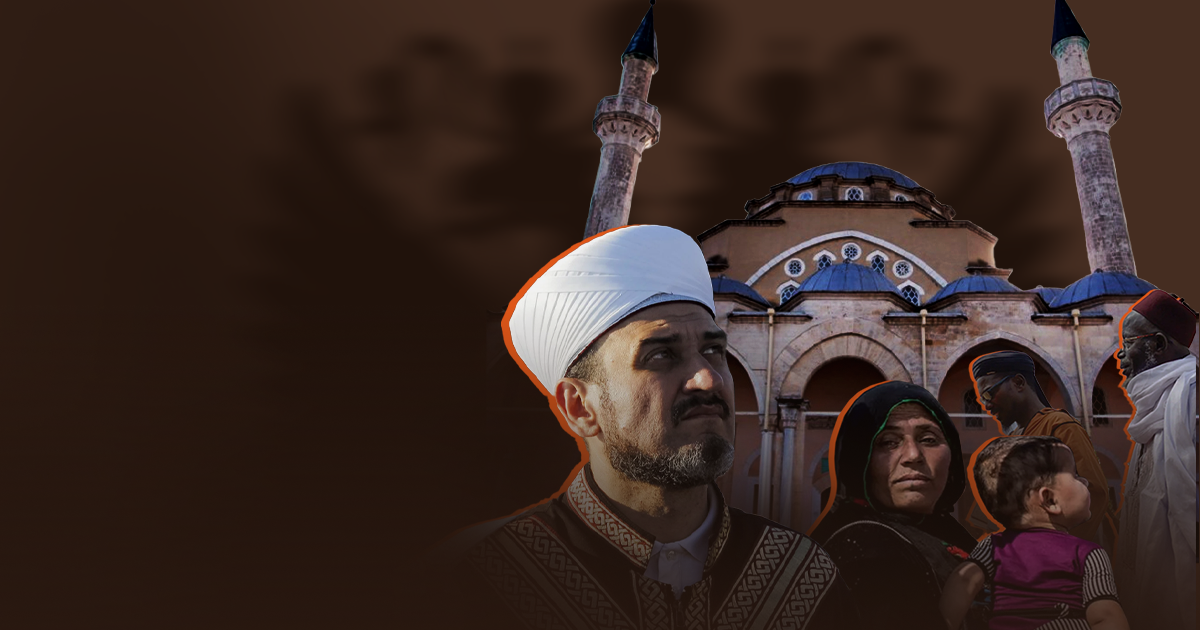
Russia often resorts to repressive measures against religious groups, especially when it comes to Islam, Crimean Tatars and the Ukrainian people. In Crimea (Qirim), Russia's repression of Muslims began immediately after the occupation.
For example, in June 2014, the FSB illegally entered a madrassa (Muslim educational institution) in the town of Kolchugine (Bulğanaq) in the temporarily occupied Crimea (Qirim). The security forces interrogated the deputy head of the madrassa, Ayder Osmanov, but then released him.
This was the first step. During the first seven months of the occupation, Russians conducted searches in eight educational institutions of the Spiritual Direction of the Muslims of Crimea (Qirim).
Read more about Russian repressions against Muslims in Crimea (Qirim) and the experience of the Muslim community in Africa, Syria and Malaysia in fighting Russian narratives and colonial manifestations against religion in the text.
The influence of Russians on Muslims in Crimea (Qirim)
4 am, a knock on the door with the butt of a rifle and an order: "Pack your things. You have 15 minutes!".
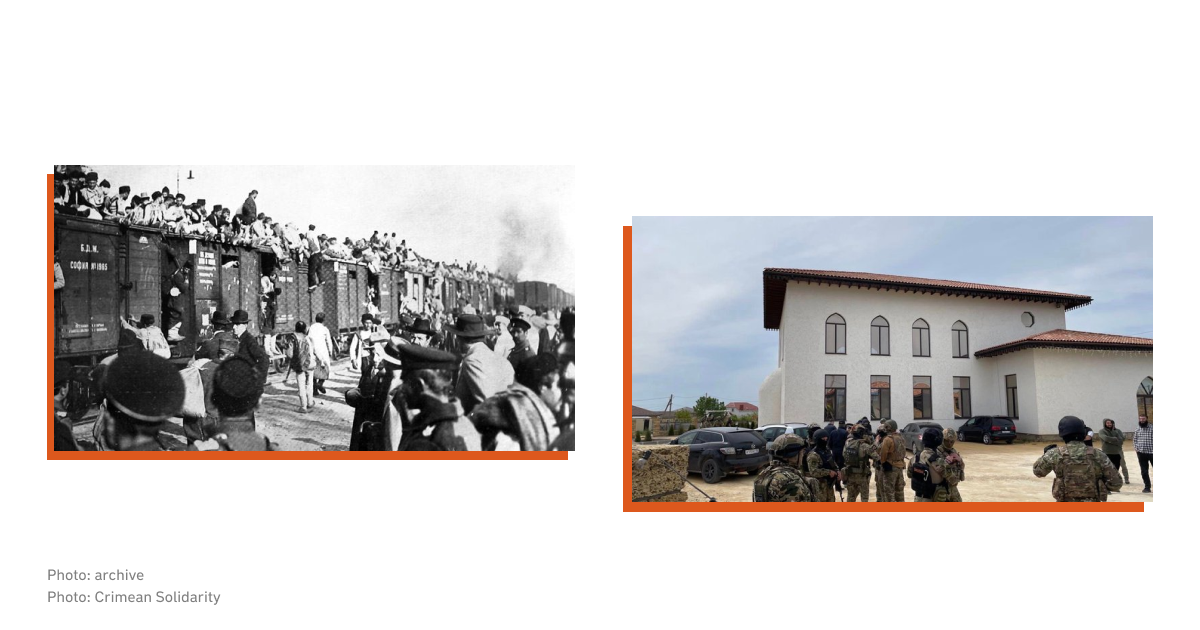
These are the memories of the leader of the Crimean Tatar movement, Mustafa Dzhemilev, about the deportation of Tatars from Crimea (Qirim) in 1944. In 2023, the doors of Crimean Tatars in Crimea (Qirim) are still knocked on at four in the morning — not for deportation, but to carry out searches and arrests.
Today, the number of Muslims in Crimea (Qirim) is about 17%. The Russian military comes not only to the houses but also to the mosques.
"They are installing video cameras in mosques, recording conversations of worshippers and organising massive document checks. Fingerprints and DNA samples are taken by force,"
says Aider Rustemov, Mufti of the Spiritual Direction of the Muslims of Crimea (Qirim).
Russians are kidnapping Crimean Tatars and holding them in captivity. They are forced to eat pork, which is against their religious values.
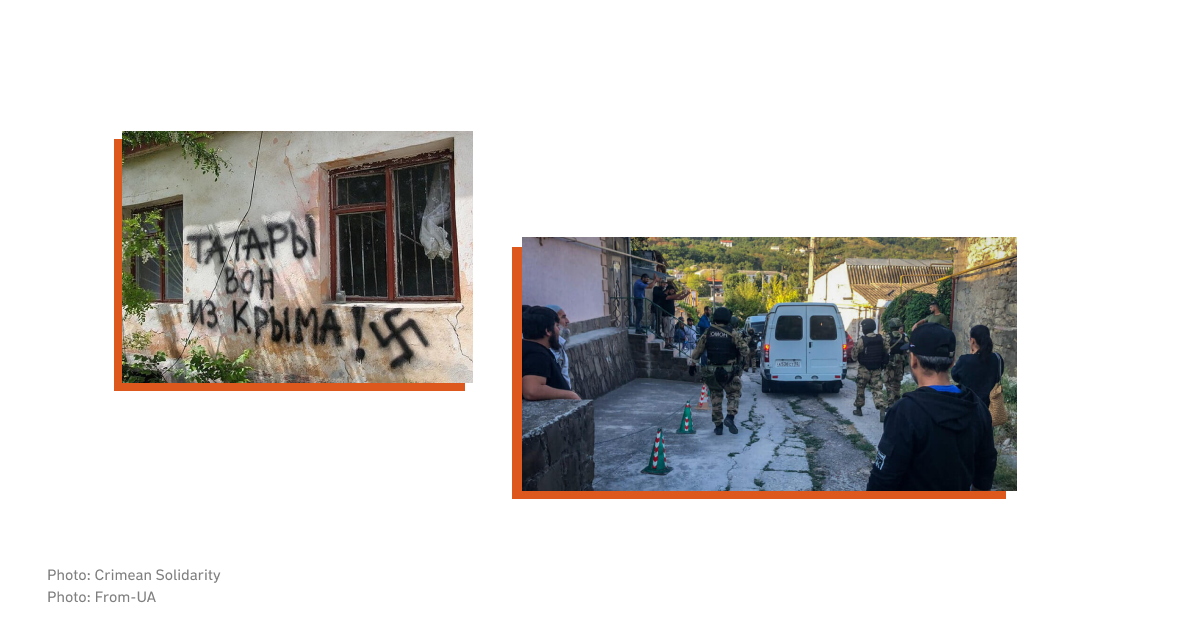
The repression intensified after the start of the full-scale invasion. Rustemov adds that after February 24, about 5,000 Crimean Tatars were forced to leave the peninsula. Those men who remain in Crimea (Qirim) are subject to partial mobilisation into the Russian army.
"The life of the Muslims of Crimea was (after the occupation in 2014 and before the full-scale invasion — ed.) and is under the constant and total control of the Russian authorities,"
says Aider Rustemov.
However, the experience of Crimea (Qirim) was not the first for Russians.
Russia and Muslims in the world
- Africa
"Ukraine discriminates against Muslims". This is a fake that Russia spreads in African media to spread disinformation, says Issa Sadio, president of the African Council in Ukraine. This narrative is also being spread by African politicians.
"Unfortunately, some African dictators support Putin because he finances them and teaches them how to hold pseudo-elections to legitimise their power. Putin also promises them free food and fertilisers stolen from the Ukrainian territories occupied by Russia. This affects the perception of the war," says Sadio.
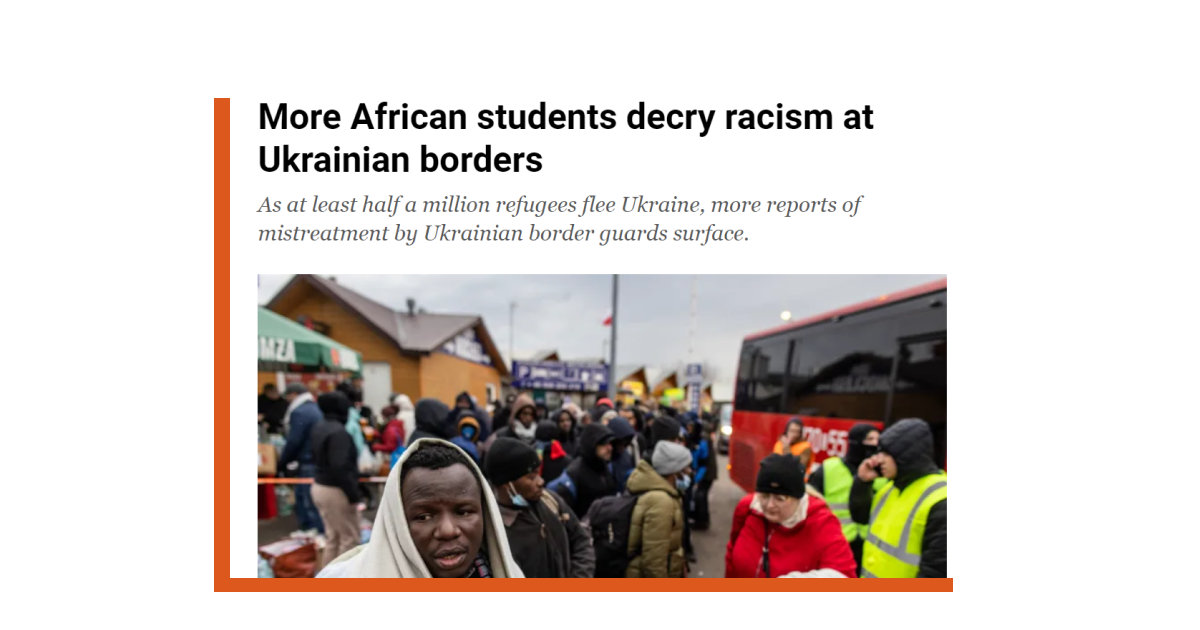
Russia is also using Wagner PMC fighters to control the African continent. And it's not just the weapons — the Russian Federation is opening Russian cultural centres where young people can learn about Russian culture and the language and then be given the opportunity to get an education in Russia.
They are also offering free food — distributing food and livestock for farming — all against the backdrop of a shortage of Ukrainian agricultural products in the region. In this way, says Issa Sadio, Russia is buying the support of the people of Africa by turning them against Ukraine.
- Syria
The head of the Syrian diaspora in Kyiv, Muhammad Zaidiyeh, stressed that the war in Ukraine is not the only war Russia is waging against Muslims. In 2015, for example, Russia officially entered the war in Syria, where some 1.5 million people have died and 7-8 million have become refugees.
Zaidiyeh said that Syrian human rights activists, together with Ukrainian ones, are currently working to bring Bashar al-Assad (Syrian president — ed.) and Vladimir Putin to the International Criminal Court.
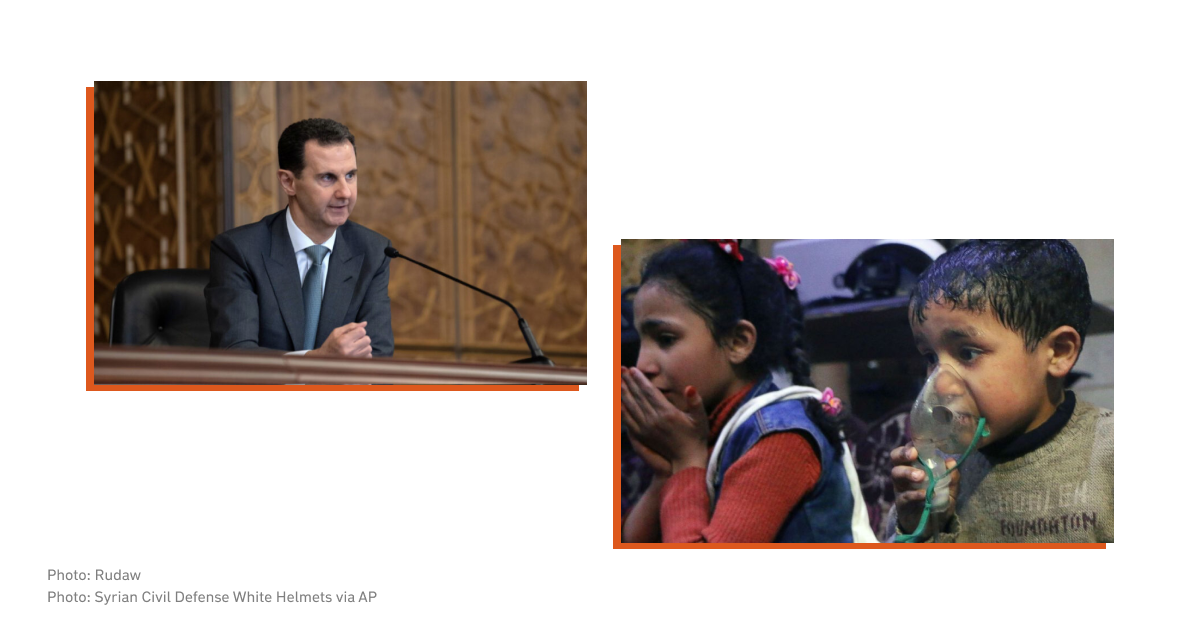
In 2013, during the civil war in Syria, the Assad regime carried out chemical attacks in the city of Douma and the Eastern Ghuta region. More than a thousand people were killed.
Syria denies using chemical weapons, but a joint investigation by the UN and the Organisation for the Prohibition of Chemical Weapons found that the Syrian government used the nerve agent sarin and chlorine as weapons.
Russia supported the Syrian government's actions, claiming that the attacks were carried out by opposition forces or staged by "Western intelligence services".
- Malaysia
The experience of Southeast Asia is different — it was not colonised by Russia. Therefore, according to Mohammad Fazril bin Mohd Saleh, secretary-general of the Malaysian Islamic Youth Movement, the view that criticising Russia is supporting the colonisers and cases of Islamophobia in these countries is popular there (Malaysia was a British colony and occupied by Japan during the Second World War — ed).
"Relatively few Muslims know anything about the Russian-Ukrainian war and the history of Russian-Ukrainian relations. Therefore, it is necessary to explain in Southeast Asia that Ukraine has never had its own colonies and that Ukrainian Muslims in occupied Crimea are subject to Russian repression,"
said Mohammad Fazril bin Mohd Saleh.


